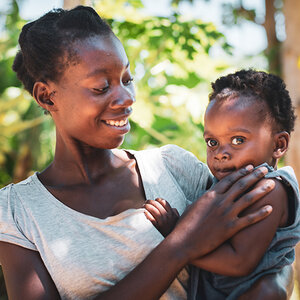Climate change to increase children’s malnutrition, report finds

Without immediate global action, an additional 40 million children will suffer from the most severe and irreversible forms of chronic and acute malnutrition by 2050 due to climate change, an annual report from the Bill & Melinda Gates Foundation finds.
According to the 2024 Goalkeepers Report, A Race to Nourish a Warming World (58 pages, PDF), the World Health Organization estimates that 148 million children suffer from stunting—a condition where children don’t grow to their full potential mentally or physically. New modeling shows that not only could that figure increase by more than 25 percent by 2050, 28 million children will experience wasting, in which they become weak and emaciated, due to the effects of climate change. The report also found that the total share of foreign aid going to Africa has decreased, despite more than half of all child deaths occurring in sub-Saharan Africa. To address these issues, the report encourages support for the Child Nutrition Fund, a new platform that coordinates donor financing for nutrition; and for governments to fully fund established institutions that have proven effective at protecting millions of lives each year, including Gavi, the Vaccine Alliance, and the Global Fund to Fight AIDS, Tuberculosis and Malaria.
The report also highlights current tools that are helping solve malnutrition, including agricultural technologies that produce more and safer milk, new ways of fortifying pantry staples, and efforts to provide a high-quality prenatal vitamin for pregnant women. In addition, the report highlights promising new research into the microbiome, indicating that better gut health can help children absorb nutrients, develop strong immune systems, and grow.
“The best way to fight the impacts of climate change is by investing in nutrition....Malnutrition makes every forward step our species wants to take heavier and harder,” Gates Foundation co-chair Bill Gates wrote in the report. “But the inverse is also true. If we solve malnutrition, we make it easier to solve every other problem. We solve extreme poverty. Vaccines are more effective. And deadly diseases like malaria and pneumonia become far less fatal.”
(Photo credit: Getty Images/poco_bw)






